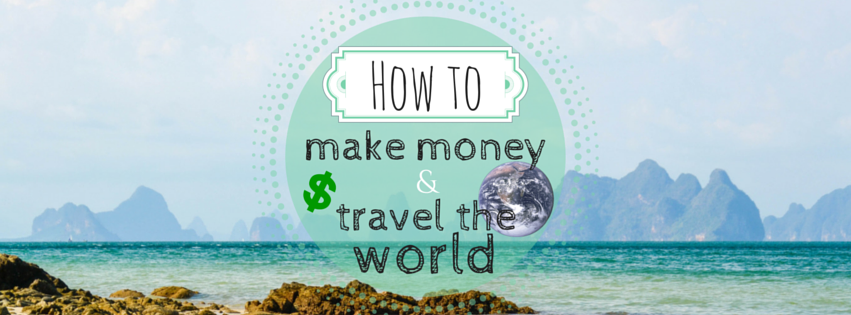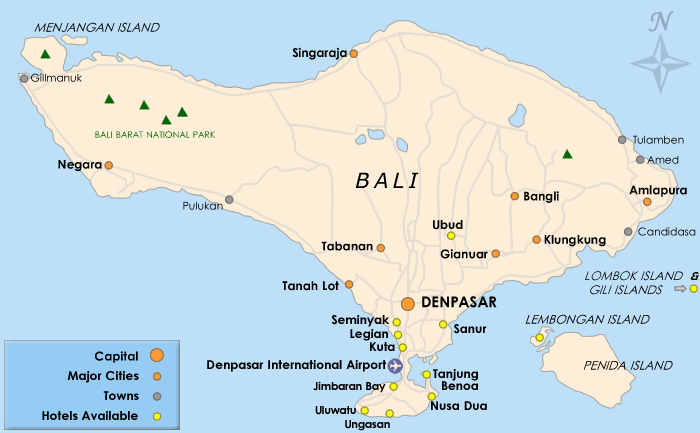
by Steve Wolf | Jun 7, 2016 | Business, Lifestyle, Travel
In my last blog I wrote about the Joy’s and freedoms of working remotely. If you missed it, read it here! This will give you a little better context of what I am writing about in this 5-Step process to finding the perfect remote job to keep you traveling and experiencing the world all while making money from your lap top.
Here is my 5-Step Process.
1 – Find a job, skill, or way that you can actually do that will produce income with out you physically needing to be there.
This is going to be your most difficult task. You may be saying to yourself “well I am a doctor, how could I possibly practice medicine from a laptop?” Well this comes down to how resourceful you want to be. My dad is doctor, a Podiatrist to be exact and he has been looking into what is know as “tele-medicine” which is basically on call and on demand video conferencing from doctors to patients. Say you have a foot problem, you go on the site, set an appointment, my dad would accept it, you are instantly connected, he gives your advice and recommendations and your done. The system charges the patients credit card and they go on their way. Booya, there is a way a doctor can work 100% remotely. You may be surprised what you find if you really start thinking of all the different ways you could monetize your skill sets right from a computer from anywhere in the world, don’t worry, we will get to that in number 2.
2. Get really good with technology.
If you are going to have any chance at being an entrepreneur on the road, then you are going to have to get really good with leveraging technology and automation. What do I mean by this. Well put it this way, I can pretty much run all of my business from my iPhone. Everything from a CRM to a VOIP telephone system that allows me to communicate effortlessly through WIFI any where in the world. This means that if you are planning on getting in to a business that has to ship “real” goods and logistics as well as a customer service dept. will be necessary, than you are going to have your work cut out for you. I am not saying that it is impossible, just going to take a couple extra steps of strategic planning and utilization of technology that automates the process.
3. Simple is better.
A good business is not necessarily a complex business. I would consider a solid business to be one that is profitable, allows you to live the life you desire and takes care of it’s employees and it’s customers. Some of the best businesses that I know of were born out of the simplest ideas or needs by a consumer. Take for example the work we do at the FX365 Institute, we teach people how to trade currencies all over the world from office in San Diego. We have students in 20 U.S. States and 4 countries that take our course 100% remotely and learn a skill set that allows them to make money in the foreign currencies market anywhere in the world from a laptop. Don’t over complicate this part. The less you need to run your business, the better off you will be.
4.How much do you really need to make?
My favorite part of explaining these concepts to people is conveying the fact that a business only needs to make you a “enough” money in order for it to change your life. If you added up all of your expenses annually, and then added in the costs to live in another country or to travel a couple months out of the year I think you will be surprised to find that you don’t need to make $300K per year to achieve your goals. In fact, I have been able to travel about 2 months out of every year for the past decade making around $100k per year. The best part is that I only really needed about $60K to sustain so any extra money that I make on top of my yearly nut goes in to savings and investments. This allows me to stay diversified, active in the markets using online portfolio managers, and open to new ideas and businesses while I can keep the quality of life I have come to enjoy. The point is to make enough and then a little more. You don’t need to be a millionaire to pull this off.
5. Multiple Streams of Income remotely
I know you have heard this one before, but maybe not through the lens of doing it remotely. Every book I have read on this topic is about real estate and multiple businesses that would require you to physically be somewhere to manage those streams. When you start to venture down the road of working remotely you start looking at businesses in a whole new light.
I have come up with a couple of questions that I use to test the remote possibilities of a business. These days, if they do not get passed these questions with a yes, then I am probably going a different direction. I wrote two articles that may give you more context when it comes to working remotely, follow the links below to check them out:

by Steve Wolf | Jun 3, 2016 | Business, Lifestyle, Travel
Does your Remote business pass the litmus test? Could you actually leave the country for weeks or months at a time and still count on the business to grow on its own and produce income.
In this article I am going to share with you some of the most important questions that you should be asking yourself to avoid a career that is going to keep you chained to your desk.
When I am approached with a business or come up with an idea, I ask myself these following questions to help me decide if I should even consider pursing the business. I wrote a blog recently about The Joys of working remotely and also my 5-Step process to finding the perfect career where you can travel the world and work from a laptop.
I have come up with a couple of questions that I use to test the remote possibilities of a business. These days, if they do not get passed these questions with a yes, then I am probably going to go a different direction. I wrote two articles that may give you more context when it comes to working remotely.
Now for the smell test questions:
1. If I spent a year building this business and I left the country for 2-4 weeks with out being able to call back or answer any emails would it still be standing when I go home?
This may take some introspection and some deep thinking about what the business is, who it would involve and what you would need to figure out to get all of the pieces together. This type of think and evaluation will become paramount when assessing situations for your business in the future, so play the tape out and visualise as best as you can where you would see yourself and the business in a year or two.
2. Is this a business I can run myself, or will I need to hire or contract out work to properly run it and if I do, will I be able to effectively manage the team remotely?
If you can do it on your own, great, do it! Unfortunately most enterprises even small ones will need to depend on others to accomplish what ever it is your business will do or provide for people. The question you need to concern yourself with is can you effectively manage then from a far or set the business up in a way where employees or partners can or would be self serving and motivated to accomplish tasks day to day to keep the company running smoothly.
3. On a scale from 0%-100% how much of the business can I automate?
(0%-60% is no good / 60%-80% is ok / 80%-100% is ideal). Automation is going to be key for you to managing efficiently from a far. It will allow you to batch work and delegate important work properly. Also it really allows you to step away from the business or parts of the business for days or weeks at a time and then come back to spot check at a later date. Most importantly automation usually takes the place of what human used to do and will allow you to perform more high value activities for the business.
4. Will it make me enough money to give me the life I desire to have and if so how long will it take to get me to that point? 60 Days? 6 months? A year?
For more on this topic check out my blog I wrote on Time vs. Money! This will really put this step in to perspective for you.
5. Pros and cons list – Now for the final step, write down all of the great things about how the business is going to get you what you want out of it. Examples could be things like “90% automation” or “allows me to travel 6 months per year” etc and then do the same for all of the potentially negative elements about the business. Make sure to be real with yourself here. Don’t sugar coat this part.
Once you have completed all of these steps, then you will have a solid understanding about what you could potentially be getting involved in. I can’t stress the importance of the exercises!
Working as a management consultant for a number of years I have a keen ability to understand what is going to make a business succeed or fail. Unfortunately most folks don’t even think about these things when starting a business. Instead they get excited about the idea, or one aspect of the new business and run with it throwing caution to the wind and ignoring or simply not flushing out the idea and all the pit falls that would ensue first.
Be smart, be savvy and get the business that will give you the life you desire but don’t ever be afraid to give your idea a litmus test! It will save you time, money and heartache in the future. These simple actions will keep you on the right track helping you to avoid a business or an idea that will stand in the way of a more well suited business or opportunity that will give you everything you need.

by Steve Wolf | May 29, 2016 | Business, Lifestyle, Travel
Do you ever dream of being able to run a business from anywhere in the world? Have you ever found yourself looking online for different ways you could travel abroad and somehow make an income while you were half way around the world.
Over the past decade I have been perfecting this skill. The truth is that it is not as easy as it sounds. This is especially true if you are used to a 9 to 5 standard day job. The dream of one day quitting that job and breaking free from the chains of the corporate world can be elusive and fleeting.
When I was 22 I left the country for the first time. I had always wanted to travel but I was a troublemaker growing up and spent the later part of my teen years in rehab getting sober. By the time I was 20, I had been sober for a couple of years and my life was back on track, so I decided to leave America and embark on an adventure.
I signed up for a study abroad trip to Spain, paid the money and prepared to leave home. To be perfectly honest, this trip wouldn’t be my first time out of America, I frequently went to Mexico in my teen years growing up in San Diego. None of my trips to Mexico had any real cultural importance. In fact, I don’t even really remember what transpired during most of those trips and never really made farther the the Tijuana bars on Revolution Blvd. This trip was going to be different, I was with college kids, and there was some structure, so I figured that was a good place to start.

I remember getting off the plane in Madrid. I was bustled away from the group with my host mom who didn’t speak a lick of English and was given a room in her little apartment. I was super jet lagged and had never been on a flight that long in my life so I passed out immediately. When I woke up it was dusk outside. I walked down the 4 flights of stairs and sat out on the side walk in the neighborhood I was staying in listening to all of the sounds of the city and taking it all in. The smells, the cars, the food, everything was different, I didn’t know anyone around, and I was far from home. I was in LOVE.
This first encounter of Wanderlust was intoxicating to me. I vividly remember it and I was so grateful to be in that moment experiencing life again in a new way for the first time.
I thought to myself, what if I could do this all of the time, what if I could just travel a lot? It was sometime on that trip that I decided I was going to need to find a line of work that was going to allow me to do this. About a week before the program ended, I told my professors running the program that I wouldn’t be accompanying them back to America, and stayed in western Europe an additional 4 months traveling around Spain, Italy and France.
Once I ran out of money, I came home. At that time I was running a Mortgage office which surprisingly was still standing after my almost 5 months of me being gone. It didn’t matter though because I came home in September 2008 just in time to watch the housing market collapse completely. I was screwed. I had done really well for a kid who dropped out of college to get rich but it was all back firing now and traveling was the last thing on my mind.
After the dust settled I was about $190,000 in debt and in need of a new career. I had decided to go back to college a year earlier and had about a year and a half left for my undergrad degree so I figured I would spend the next 2 years finishing college and finding a career that would set me up to travel the globe and make money while I was doing so.
The first business that I found that worked really well for me was multi-level marketing. It seemed like a great fit, I was recruited in to a company being sold the dream that if I spent a couple years working hard at building an organization, it would eventually take off and continue to pay me residually. This was PERFECT. I could build the business for a couple years to about $100K per year then disappear to Indonesia
For a first timer in MLM, I did incredibly well, and I build that $100k per year income in a short amount of time but it was short live. The first company I was with asked me to leave and the second company I joined eventually went belly up. Also every time I would leave the country on a trip, I found myself on my phone or laptop the whole time putting out fires and that was just plane stupid.
When I finally walked away from the industry I decided to put my entrepreneur hat back on. I had raised some money for a tech start-up and was actively learning how to trade currencies in the FOREX market.
I never lost site of my desires and dreams of being able to make money from a Laptop; I just needed to be a little more resourceful. I found that as long as I can offer real value to a client even being a great distance away, that my capability to earn money anywhere where I was in the world would be there.
So over the past 5 years I have been doing just that. Most of the consulting work that I do is never from an office, maybe my home office. I do keep an office at the Currency trading school that I have a long-term contract with but they have always been cool with me leaving and making my own schedule. Again, I attribute that leniency to the results I am able to deliver. The moral of the story is that there is a million ways to make money and add value to a person, place or business, however you need to be resourceful if you are going to do this from a laptop half a world away.
I have put together my top 5 tips to finding your own way to take your business on the road with you for good. Read “Top 5 Tips to Working remotely.” To see what it’s all about

by Steve Wolf | May 13, 2016 | Lifestyle, Travel
Bali is one of my favorite places to travel to. The first time I went back in 2010 I fell in love and it stole my heart. Since then I have been back multiple times, and I currently in the process of looking for a villa to buy so I can live between there and San Diego a couple months out of the year. I have been there so any times now that I have become somewhat of an expert on making your way there and how to avoid some of the typical tourists traps. Reading this blog will save you a couple of hours sifting through trip advisor and lonely planet. Enjoy!!
Bali Demographics
Population of Bali is about 4.1 Million with about 6 million tourists in and out each year.
Religions
Unlike most of Muslim-majority Indonesia, about 93.18% of Bali’s population adheres to Balinese Hinduism, formed as a combination of existing local beliefs and Hindu influences from mainland Southeast Asia and South Asia. Minority religions include Islam, Christianity, and Buddhism.
Language
Balinese and Indonesian are the most widely spoken languages in Bali, and like most Indonesians, the vast majority of Balinese people are bilingual or trilingual. There are several indigenous Balinese languages, but most Balinese can also use the most widely spoken option: modern common Balinese
Currency – Indonesian Rupiah
English is a common third language (and the primary foreign language) of many Balinese, owing to the requirements of the large tourism industry. Staff working in Bali’s tourist centers are often, by necessity, multilingual to some degree, speaking as many as 8 or 9 different languages to an often surprising level of competence.
Culture
Bali is famous for many forms of art, including painting, sculpture, woodcarving, handcrafts, and performing arts. Balinese gamelan music is highly developed and varied. The dances portray stories from Hindu epics such as the Ramayana. Famous Balinese dances include pendet, legong, baris, topeng, barong, and kecak (the monkey dance).
If you are thinking about planning a trip to go there, I have put a guide together to help you out
Flights to Bali
You can find flights from the US ranging from about $650-$1400 round trip for a standard economy ticket.
If you’re a surfer.
Bringing surfboards boards can make or break your travel budget. YOU MUST CHECK TRAVEL AND BAGGAGE RESTRICTIONS on all airlines. For example. China Air charges $100 per board each way when EVA air will charge $100 for a board bag (up to 2 boards) each way. You can find a really cheap ticket and end up paying $400 to get your boards to and from, so make sure you check before you buy.
Also, I have simply bought a surfboard when I got to Bali and sold it when I left, you lose about $100-$150 on the resale of the board, but it usually ends up being a wash.
Accommodations
I have included a short list of all the popular places that people usually stay. If the name of the city is not on the list below, don’t stay there. For a group of 4+ people of mixed surfers and non-surfers, I suggest Canggu or Seminyak through Airbnb. Should be about $150-250 for a 3-5 bedroom place. Uluwatu is cool to stay at but there isn’t much to do on that side of the island exact go surfing.
Here is the break down:
- Seminyak – Cool, lots of shopping nice area, not crazy like Kuta
- Kuta – Mother fucking shit show if you like to party. Never Quiet, farthest from traditional bali, lots of drunk Australians
- Canggu – Quiet, and where all the hipsters hang out.
- Uluwatu – Surf Surf Surf, not much else to do
- Ubud – Lots of Yoga, far from the beach.
MONEY – If you don’t have your capital one account yet, get it TODAY to make sure your card gets here in time!
One thing that you will need on your trip is access to $. I use a capital one account that charges no ATM or international fees and the best part about it is that if you use this link to sign up for the account, then you even get a $20 bonus just for opening it up.
The checking account has no FEES, No minimum balances, no gotchas or any other bullshit, it is my GO TO travel fund that I have used for years. So everyone reading this please follow this link, open an account with enough time before your trip to make sure you get your Debit/ATM card before you leave.
I’ve got it figured out to where you can pull money out of an ATM in Bali getting NO FEES ON EITHER SIDE!!!!
https://r.capitalone360.com/PNZJXWNyrj
- Make sure to bring Money for the ride the ride to and from the airports.
- Keep roughly $150-$300 cash USD for the trip
Here is what you can expect to be spending daily and what things cost.
- Scooter rental $4-$7 per day
- 1 hour massage $5
- Breakfast $3-$5
- Lunch $3-$5
- Dinner $5-$8
- Pre Paid Sim for Cell phone including internet $15 then about $10 per week ($35 for the whole trip)
- Water – $3 per day
- Gas for scooter every couple of days ($8)
- Then incidentals, but you should plan for about $30 a day tops!
Travel Insurance
I take out a travel insurance policy anytime I leave the country. I have ended up making a claim on it about 50% of the time. Travel insurance covers everything from Broken Boards, Smashed or Stolen Go-Pro to lost and delayed baggage and trip cancellation and or Medical expenses. Some people think their credit card covers this shit but it doesn’t. On average a travel insurance policy for a trip that we are taking is going to run you about $80-$120 and is worth EVERY FUCKING PENNY!
I usually go directly to my local AAA office and do it there, however if you are not a AAA member, here is the company I have used and they are solid and have paid out all the claims when I made them http://www.allianztravelinsurance.com/
Packing List
For your convenience, I have included my packing list I use for Indo trips, this will cut down on you bringing a bunch of extras stuff and ensure that you have all of your really important items. (Click link to download the excel spreadsheet)
Cell Phones and Calling Home
You can get a cheapo phone in Bali to use to make calls locally or you can do what I do and get and “Unlocked” phone and buy a pre-paid sim card for it. Usually your best bet is to get an old iPhone, like a 5 or 5s (around $100) and just use it there. They are really convenient to have because you can get internet on them and use Google maps feature for turn by turn directions while you are navigating around on your scooter. Just makes sure that it is unlocked and you are good to go.
Otherwise you will be using Skype to make phone calls home, so if you don’t have an account, set one up and put $10 worth of credit on the account. Thats all you will need to call home, unless of course you have Mac or what to use FaceTime from your iPhone which is free with Wifi.
Here is a breakdown of the time changes so you can make calls.

Ok thats all you need to know. Your welcome as a bonus, I threw in the surf guide.






